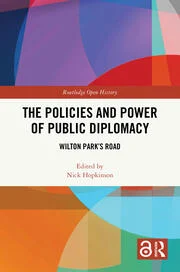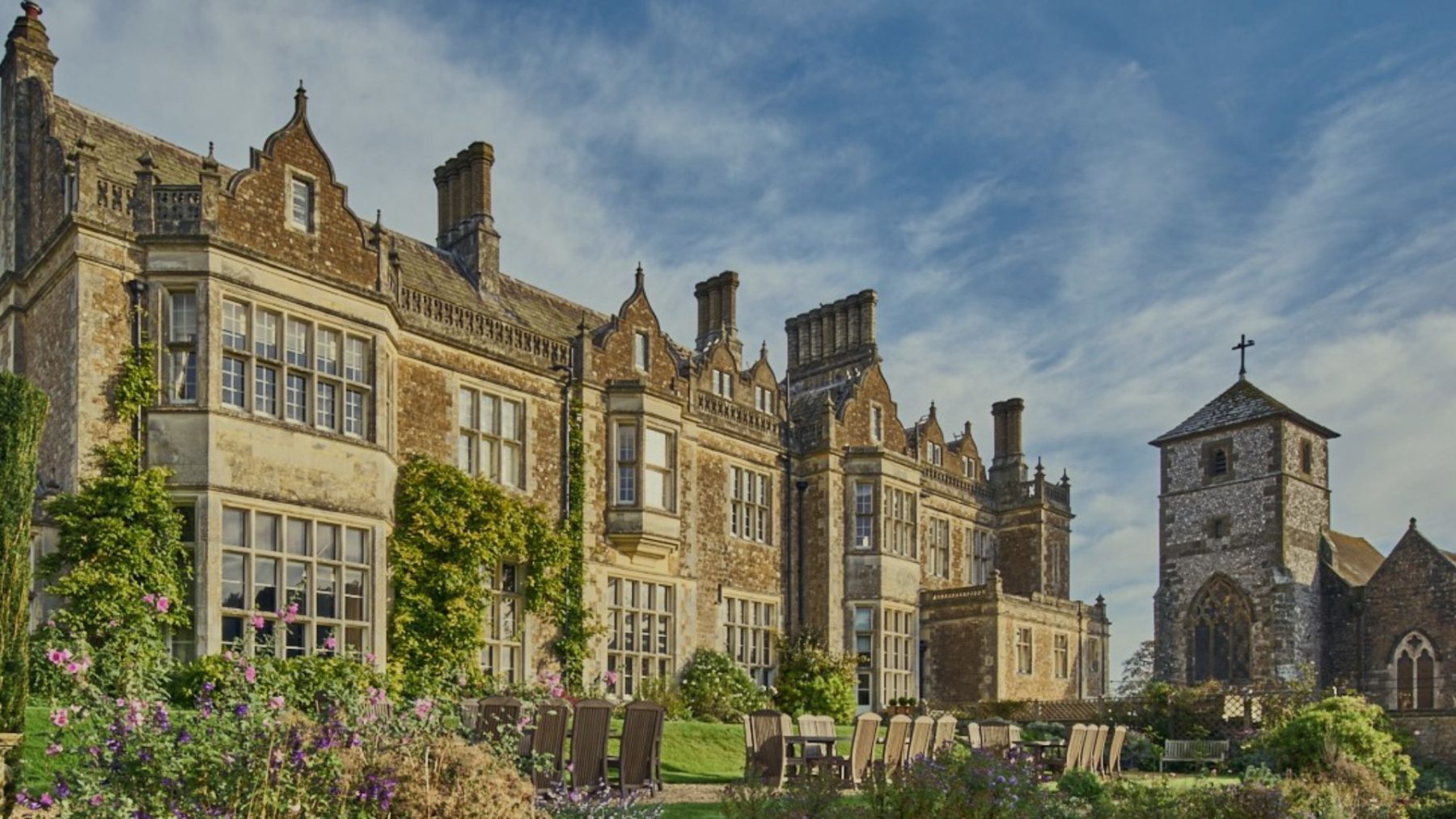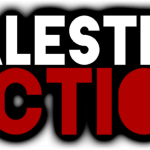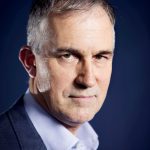AEJ UK member Nick Hopkinson has launched his book about Wilton Park, an exploration of nearly 80 years of work and discussions that turned it into a leading international policy forum.
The Policies and Power of Public Diplomacy is the culmination of a three-year project which explores Wilton Park’s higher level discussions since 1946, edited and mostly written by Hopkinson, acting chief executive, director, report editor, and program director at Wilton Park between 1987 and 2010.
He noted the timing of its publication in spring 2025 made it a kind of “requiem for the post-war global order.
“It is testament to an unprecedented period of international cooperation and the spread of democracy, which albeit imperfect, helped spread greater peace and prosperity throughout the world.”
He wrote this article for The Foreign Policy Centre in August:
The urgent need to revive democracy and the power of diplomacy
Few challenges are as pressing as the need to stop the democratic backsliding seen in many leading nations today, as evidenced by, for example, the increased undermining of independent media and the judiciary, and growing infringements of human rights. Weaknesses in, or the absence of, democracy are often at the root of conflict, whether internal or international. Discussing challenges and ultimately co-operating are cheaper than the heavy cost, both human and financial, of crises and war. Both can be mitigated, perhaps on occasion avoided, through greater international understanding and co-operation nurtured in what are called ‘Track 2 spaces’ for dialogue, such as Wilton Park.
Post-WWII Origins
Initially a ‘re-education camp’ for German officers after World War Two (WW2), Wilton Park was a key part of Sir Winston Churchill’s vision to build a democratic post-war Germany. Since then it has evolved into a first-class international policy forum which has expanded beyond its 16th century country home in West Sussex to work in more than 50 countries. Founded by Sir Heinz Koeppler, Wilton Park established an independent approach to democracy building and international policy dialogue. Koeppler believed strengthening democracy and international understanding could be progressed through talking, debating, eating and living together. The original ‘courses’ evolved into interactive roundtables for ministers, diplomats, officials, academics, businesspeople, journalists and non-governmental opinion formers from countries around the world.
The UK’s model of parliamentary democracy has been discussed regularly at Wilton Park, especially in its early years. Sir Heinz was sensitive to possible accusations that the institution might be regarded as an instrument of government propaganda. To avoid this he crafted an independent, inter-disciplinary, international and interactive method which became widely recognised as a skilful exercise in education, engagement and influencing.
After its original mission was successfully achieved, Wilton Park focused on other topics, sometimes to survive as an institution. It has addressed topical international policy issues and challenges since 1946 including: forging consensus in the transatlantic alliance and the North Atlantic Treaty Organisation; the Cold War; developments in the Former Soviet Union, in particular the Russian Federation; arms control; UK relations with the European Community and the Commonwealth; integration in and enlargement of the European Union; Africa (including ending apartheid); China, and the Middle East.
Post-Cold War Shift
The end of the Cold War resulted in Wilton Park’s greatest expansion of subject coverage, notably transnational challenges such as migration, crime and terrorism, curbing climate change and disease, as well as humanitarian intervention. There was also a renewed emphasis on democracy promotion, this time focused on the developing world.
As transnational challenges grew in salience in the post-war era, tackling them has exposed the limits of the nation state. As former Foreign and Commonwealth Office Minister of State, Sir Kenneth Younger, argued at Wilton Park in 1973 “none of these modern problems can be solved within the framework of the traditional nation state”. In the past dozen years, coverage of developing world issues has come to dwarf European coverage, in part reflecting changing UK government priorities, notably the UK’s — possibly short-lived — pivot away from Europe after Brexit. Most recently, the multi-national response to the COVID-19 pandemic demonstrates the need for, and benefits of, international co-operation.
The Current Age of Democratic Erosion
A triumph of the liberal order was the spread of prosperity to developing nations, notably China. It was hoped economic liberalisation would lead to the strengthening of democratic practice, but in spite of positive signs in the 1990s, progress in the new millennium has proven limited, and in some cases democratic reforms have been reversed.
The ongoing rise of populism suggests strengthening democracy is needed more than ever, even in the mature democracies which championed it during and after WW2. The recent democratic backsliding can be attributed, inter alia, to low growth after the 2007/8 global financial crisis, the failure of governments to spread the benefits of globalisation fairly, and the inability of nation states to resolve the new transnational challenges to which Sir Kenneth alluded. Furthermore, the revolution in digital technology has resulted in an explosion of media sources and increasing misinformation, leading to a decline in a shared understanding about domestic and global developments. This makes it much more difficult for governments to address problems and to co-operate internationally.
Populism in the digital age appeals to nationalist, isolationist and protectionist sentiment which provide particularly ill-suited solutions to today’s challenges. Today’s performative populist politics is less directed against other states, and rails against an amorphous globalisation and other social groups. The growth of Islamophobia and anti-Semitism and the scapegoating of refugees deflect attention from the real need to tackle growing domestic inequality and under-investment in health, education and infrastructure. If politicians fail to deliver solutions based on evidence and need, the integrity of democratic institutions themselves is further threatened, and authoritarian tendencies are strengthened. To restore faith in the functioning of democracy, citizens, particularly the young, need to be empowered through greater education and digital literacy, especially critical thinking and the ability to assess the veracity of media content.
The growing erosion of democracy has international ramifications. Wilton Park’s discussions since 1946 reflect the rise, consolidation and more recently decline of the post-war liberal ‘Western’ international order. That order can only be effective if democracy continues to function effectively in the countries which have underpinned it. Furthermore, if the US in particular is no longer able to and/or willing to champion the international post-war liberal order it shaped, the perception grows that the order is less relevant.
What Next?
Indeed, today the liberal international order looks less liberal, less international and less ordered. Stasis in the World Trade Organisation and failure to reform the United Nations system are symptomatic of declining international cohesion. Most worryingly, as foreseen in a 2017 Wilton Park conference, the increasing ineffectiveness of global powers and diplomacy means interstate conflict becomes a greater threat. Five years later, Russia invaded Ukraine and conflict rages again in Israel-Palestine. Might has prevailed over right.
As the international order fragments, what can be done? One senior Pakistani diplomat, Malik Azhar Ellahi, noted Track 2 exchanges such as those at Wilton Park can play an important role.
“When existing treaties (are) being junked and ongoing initiatives trashed… the one tempting conclusion is that it makes no difference what goes on in Track 2 exchanges. This in my view will not only be unfair but also unfortunate. I would think that there is a greater need at this time for policy to take into account views and concerns expressed in informal settings so that the divide which has emerged in official fora is not made permanent”.
If democratic governments, opposition parties, non-governmental organisations and citizens do not redouble efforts wherever we can to counter the growing threat of populism, the continuing weakening of democratic checks and balances, and the undermining of international law and institutions, we risk ending up where Wilton Park started after WW2. After another horrific global conflict, ways and structures will again have to be created for nations to co-operate and live together in peace.
In the context of the fragmenting post-war global order, democratic backsliding and the growth of misinformation, spaces such as Wilton Park are needed more than ever as forums to exchange and influence policy and opinion through constructive informed dialogue. Sir Heinz’ logo for Wilton Park of a bridge of international understanding remains as apt as ever.

The Policies and Power of Public Diplomacy was officially launched at the National Liberal Club on 8 October 2025 and focuses on themes discussed over the years including building democracy; the (first) Cold War; the former Soviet Union/Russia; NATO and transatlantic security; the UK and Europe since the Schuman Plan; EU Enlargement; Africa (including ending apartheid); the re-emergence of China; the Middle East; good government, the media, digitisation and new challenges to democracy; the United Nations, conflict, and humanitarian intervention; as well as major international challenges such as sustainable development, curbing climate change, and international health.
It is available free as an open access volume at the following link.
The Policies and Power of Public Diplomacy Wilton Park’s Road – Routledge
The need to revive democracy and diplomacy – Nick Hopkinson The Foreign Policy Centre 8 August
Wilton Park 60th anniversary – AEJ chair and BBC correspondent William Horsley 17 January 2006








